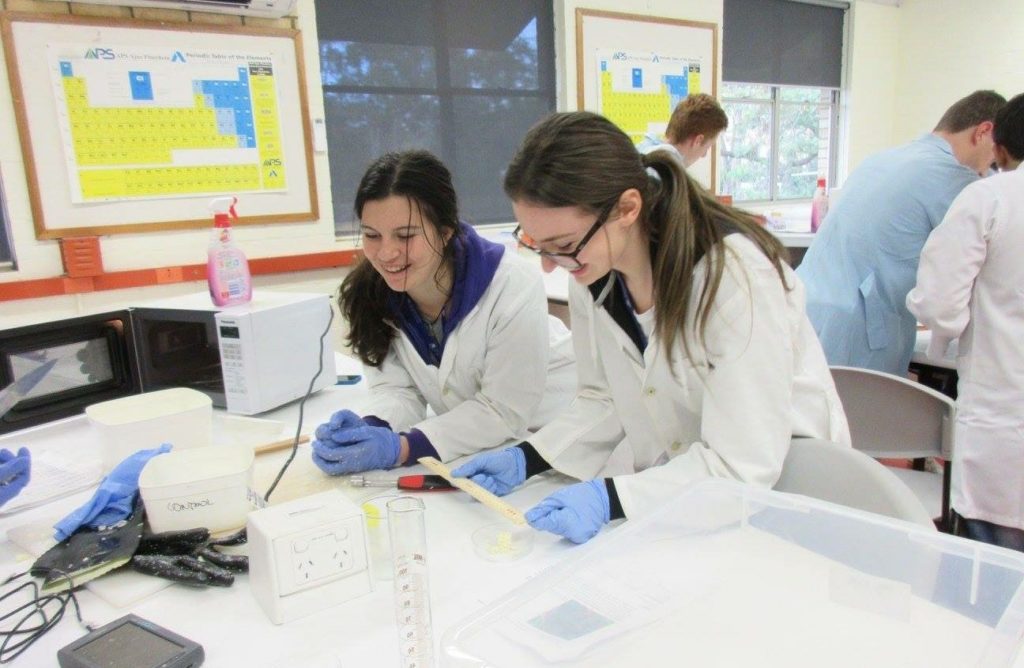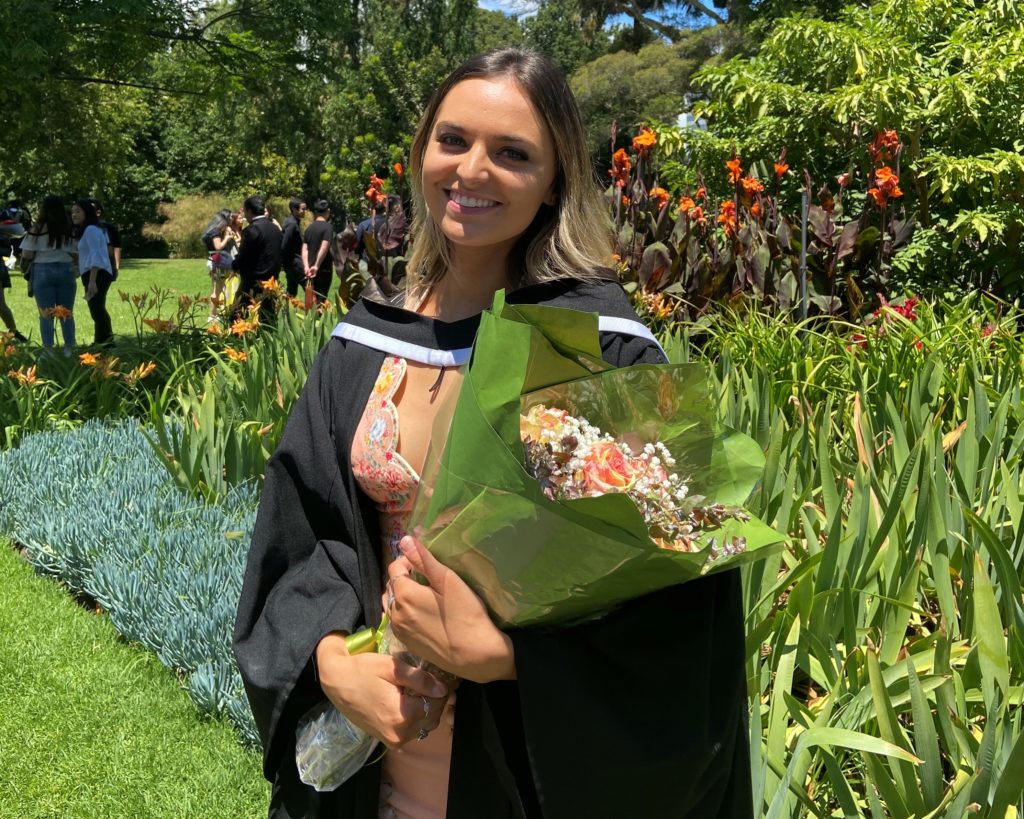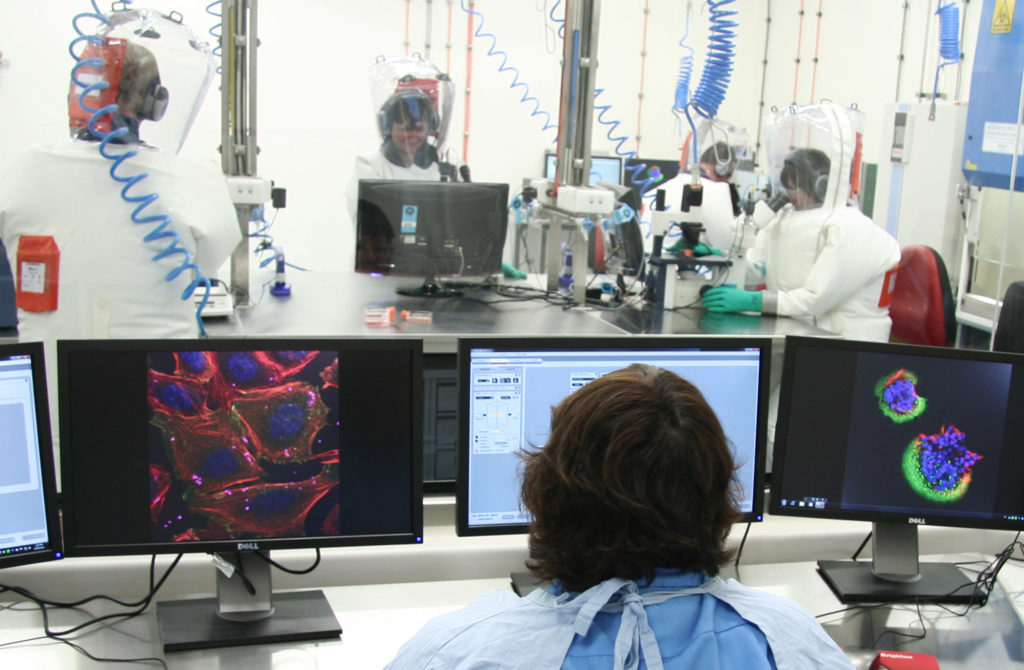
Karla’s (right) love for science started early. A science internship was always on the cards.
Deciding between a science discipline can be a very hard thing. Just ask Karla Heric. She’s currently completing a Master of Science (BioSciences) but wasn’t sure on where her study and career was going to take her. Until she landed an internship with us.
A family connection in science
“I was interested in science very early on in life. My Aunty did a Bachelor of Science at the University of Melbourne and worked at a research lab in a hospital. On holidays she used to take me to work with her. I would see her in the lab and find it so fascinating,” Karla said.
“In high school, I picked a lot of science and maths classes. But I never really knew what science I liked best. It was always a struggle working out what type of science to pursue. That’s what drew me to the University of Melbourne – I didn’t have to pick straight away.”
Karla got to the second year of her undergraduate degree and still hadn’t decided on her major. She was considering either medicine, veterinarian medicine or genetics. But she wanted to get some field experience to help figure it out.
“That’s where CSIRO came into it. I reached out to someone at the Geelong site so see if I could come down and have a look. It wasn’t even about getting an internship but about being exposed to the industry and to see what a day looked like for a scientist,” she said.

Karla graduated with a Bachelor of Science majoring in genetics at the University of Melbourne.
A day in the life of a scientist
Karla reached out the molecular genetics team in Geelong and ended up doing a summer internship at the lab. She described the experience as her ‘dream internship’.
“There were a few different reasons why it was a dream internship. I loved how everyone varied in experience and expertise but worked together closely to find solutions. There was a strong sense of community and being a part of it was truly special,” Karla said.
“And although exploratory research is very important and we need it, I’ve always wanted to do research where I could see the immediate impact. And that is CSIRO. They are very industry driven and want to see how the science can be applied in the world. That’s what I resonated with,” she said.
Karla ended up picking genetics as her major and completed her third year of her undergraduate degree. She is currently completing a Master of Science (BioSciences). She is researching the bacteria in coral algae to understand how they contribute to change resistance.
Importance of a science internship
Mark Tizard is a Team Leader and Research Scientist at our Australian Centre for Disease Preparedness (ACDP). ACDP is where our scientists are working around-the-clock researching SARS-CoV-2.
Mark looked after Karla in the lab and said she had a good level of curiosity for the work environment and organisation.
“I loved the proactive approach Karla took. She targeted CSIRO, and me in particular, making use of her social networks to identify someone with whom she had a common thread and a common area of scientific interest,” Mark said.

Scientists working in the secure area at ACDP.
Mark said that internships are extremely valuable for everyone involved.
“We would love to have more students like Karla come through our labs. It’s these active and open minds that make the best of opportunities like the ones we have to offer. And that is so important for the future of science in this country,” Mark said.
“It’s very important to get students into real-world laboratory settings, to see and understand the dynamic, stimulating, challenging and encouraging environment it can provide for an open young mind. If done right, it should help give them a focus on why they should put that extra effort into their degree.
“And getting that experience outside of the university setting broadens their horizons and provides an all-important first step for the development of their CV and their career path. On the other side it gives us (older scientists) hope for the future of science in this country.
“These are the young minds that will drive the changes we so desperately need to shape a sustainable, healthy and prosperous future for Australia,” he said.


19th October 2021 at 10:34 am
Here we are here to look for information that can make us gain insight. thank you for this good article
I like your article, thank you
15th October 2020 at 8:43 am
Well done Karla. Well done CSIRO. Can only dream of a world in which all career decisions are driven by exposure to the field of choice.